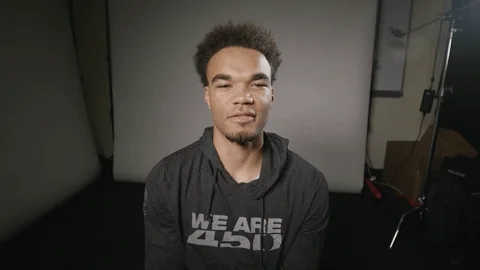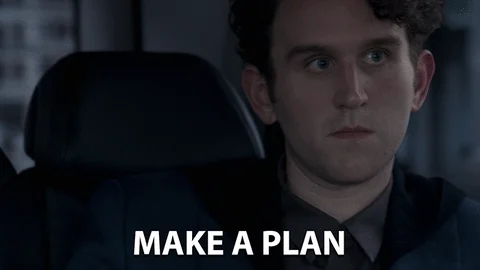So, you're curious about what makes criminals tick...

Growing up in a developing country, I saw petty crime often. But seeing a five-year-old rob my mother intrigued me about criminal behavior. Naturally, I considered majoring in criminology, but me being a cop?
Perhaps you think that a criminology degree focuses on just criminal profiling that automatically leads to police work.

Not so! Criminology is the study of all things related to crime, and a major in this field will help you gain numerous skills that can kickstart a career in many different sectors, including law, research, academia, and yes, law enforcement too.
Why study criminology?
Criminology is a pretty exciting field and could be your perfect major, especially if you're interested in subjects related to crime and justice.

Some reasons to consider criminology include:
A bachelor's degree will qualify you for some good entry-level jobs.
Your work makes a positive impact on society.
Your degree prepares you to succeed in specialized courses and in professional settings.
You learn diverse skills that open the door to many career paths, like government and investigative areas.
Some universities offer opportunities for real-world experience.
You'll develop skills that are highly valued by employers.
What will you learn as a criminology major?
Criminology is a multidisciplinary field and an academic major. You'll learn topics like psychology, criminal justice, and statistics through lectures, class discussions, essays, research projects, and sometimes internships or fieldwork.

The classes you will take vary from university to university, but every criminology major can expect to have the same core credits and a choice of electives, as listed below.
Core credits:

Introduction to Criminology and Criminal Justice
You'll develop critical thinking skills when you examine and evaluate how society responds to crime. You'll debate topics like the death penalty.

Crime Analysis
You'll learn, write about, and discuss research that connects the causes of criminal behavior with factors related to body (biology), mind (psychology), and environment (sociology).

Research Methods
You'll begin to understand research methods by learning to collect and analyze data using statistics. You'll also learn to design, conduct, and present your research findings.

Criminal Law
You'll examine case studies, write essays, and analyze important cases, such as the Miranda Rights case in the U.S., which have changed the law to explore the complex criminal justice system (see the video below to learn more).
You'll apply your understanding of legal concepts during debates and in real-world scenarios.
Electives:
These courses vary between colleges so you might want to check that out before choosing a program. Below is a list of a few courses to give you an idea of what is out there:

Inequality, Ideology, and Social Justice
Criminal Justice Policy
Forensics: CSI Science
Social Aspects Of Mental Health
Supreme Court and Public Policy
The Chemistry of Crime

During a class debate, your classmate says, "Only factors related to the mind are linked to the causes of criminal behavior." He therefore excludes factors related to the body and environment. How do you counter this argument?
A. You agree.
B. You say that finding the causes of criminal behavior is complex, as they're related to our upbringing and life experiences, which are also complex.
C. You say that he is wrong because there are many causes of criminal behavior and we can't just point to one cause.
D. You say that there is no cause — some people are just dishonest.
Quiz
Which answer is correct from the above choices?
What career path can you follow?
Many career choices are waiting for you after you get your criminology degree.
You can work as a probation officer helping ex-offenders re-enter society, as a forensic science technician examining crime scene evidence, or join a police academy to work in law enforcement.

If you lean towards the legal side, a criminology degree can help you land a job as a paralegal,assisting lawyers to prepare for court cases. You could use this paralegal experience to strengthen your application to go to law school and become a criminal lawyer.

If you enjoy academics, you can study for a Masters degree or a PhD to become a:

University professor: You'll teach at universities, conduct research, and publish scholarly articles.

Policy analyst: As a policy analyst in criminology, you'll research and evaluate laws and regulations to help prevent and address crime effectively.

Cybersecurity analyst: You'll protect your organization's computer systems and networks from hackers.

Federal agent: You'll be responsible for protecting national security through investigating many federal crimes, such as terrorism, organized crime, and government corruption.
Quiz
Imagine you're entering your second year of a 4-year bachelor's degree and you're considering applying to law school after graduation. Which electives would be the best fit for your future goal? Select all that apply:
How do I prepare for a criminology degree?

Research: Learn about the entry requirements, courses offered, and cost of different criminology programs.
Finances: Getting a degree is expensive. Look for scholarships and grants, and consider getting a part-time job.
Brush up on your math: Take math courses, particularly in statistics, calculus, and data analytics.
Gain relevant experience: Engage in activities that relate to criminology, such as research projects or internships, community outreach programs, or volunteering with at-risk youth.
Take Action

Criminology is an exciting field, and you're likely to have an exciting journey in which preventing or solving crime and improving the justice system are your passions. Studying criminology will undoubtedly start you on a path to a rewarding and successful career!
Your feedback matters to us.
This Byte helped me better understand the topic.
